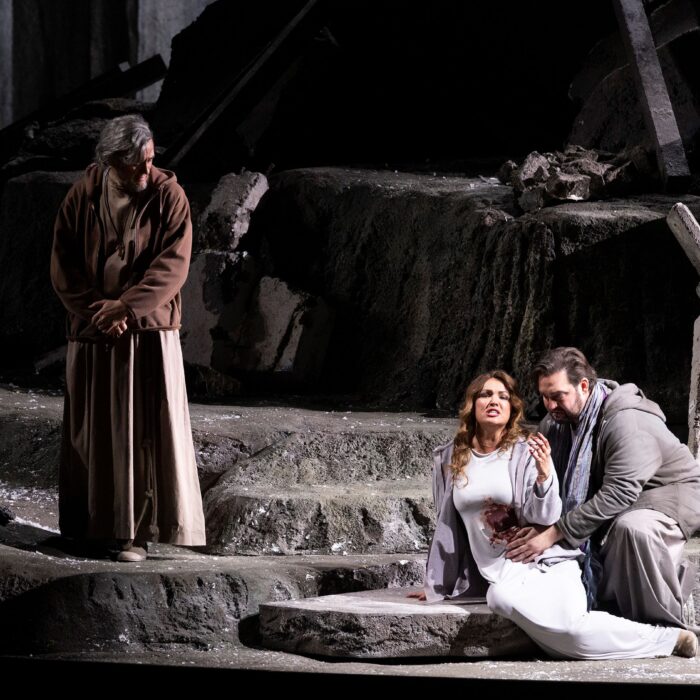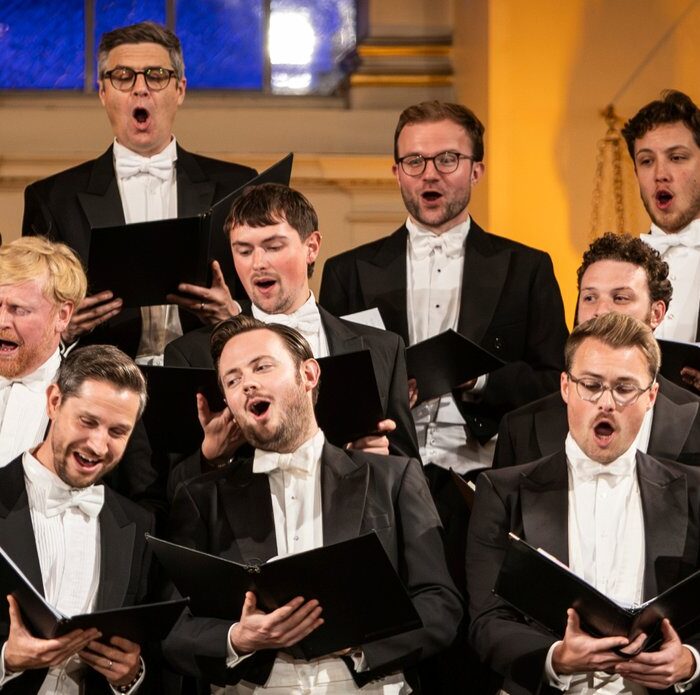
CD Review: Soprano Giulia Bolcato & Remer Ensemble’s “Barbara Strozzi – Opera Ottava”
By Jennifer Pyron(Photo credit: Celeste Gaia)
Better understanding the beginnings of a musical genre is vital for sustaining the genre into the modern day. Available documentation of these origins is often scarce, especially when a genre dates back to the 17th century. But, some anecdotes always seem to stand the test of time: because they are destined to.
Italian soprano Giulia Bolcato graduated with honors in singing from the Benedetto Marcello Conservatory in Venice. Specializing in 17th and 18th century repertoire, during her career she has interpreted Musica and Euridice in Monteverdi’s “Orfeo,” Love in Cavalli’s “Gli amori di Apollo e Dafne,” Belinda in Purcell’s “Dido and Aeneas,” Tusnelda in Bononcini’s “Arminio,” and most recently Echo in Richard Strauss’s “Ariadne auf Naxos.”
Bolcato’s debut album, “Barbara Strozzi – Opera Ottava,” naturally aligns with her speciality in 17th and 18th century repertoire while revealing more about her passion and purpose as a modern day singer. In her own words, “I am aware of the ever-increasing demand for entrepreneurial skills in my field, and in this regard, Barbara Strozzi has been a font of inspiration: raised as an illegitimate daughter in a wealthy home, she had to defy convention in order to make her way, living near to the margins of society, showing determination and an extraordinary ability to create works of great artistic value. For this reason, I wanted to make this Barbara Strozzi album to celebrate her music, her tenacity and to bring to light the beauty and historical importance of this great composer’s music.”
Barbara Strozzi’s Op. 8, “Opera Ottava”
Born in 1619, under the suffocating societal auspices of patriarchal ignorance and dominance, Barbara Strozzi entered the world of non-favor: she was both illegitimate and female. Despite these odds, her father, renowned poet Giulio Strozzi, did everything he could to make her life and destiny as an influential singer and composer possible. She would go on to publish eight volumes of her own work in her lifetime, having more secular music in print than any other composer of the period. But her father’s efforts were not enough to support her comfortably nor indefinitely. Though Strozzi did everything she could to secure permanent patronage, submitting beautifully constructed letters and appropriate ideas for funding, she was consistently denied by the aristocracy and the Church. She seemed fated to fade into the unknown and the under-documented. But a memory of this musical pioneer has survived the intervening centuries, against all odds. Strozzi’s hard work has ensured she is still remembered for her prolific body of works and legacy as one of the creators of the cantata.
Strozzi’s Op. 8, “Opera Ottava” was first published in Venice in 1664 and dedicated to Sofia, Duchess of Braunschweig and Lüneburg. It consists of 12 works, including five cantatas, six arias, and one serenata. Giulia Bolcato’s debut 2024 album, produced by French label Arion, features two discs for listeners to enjoy the natural ebb and flow of all 12 works, accompanied by the Remer Ensemble: Federico Guglielmo and Elisa Imbalzano on violin, Ludovico Armellini on cello, Gianluca Geremia on theorbo, Marta Graziolino on harp, and Roberto Loreggian on organ and harpsichord. The album translates very well musically because the acoustics of the recording sound and feel natural to the listener’s ear. I enjoy playing both discs in the morning and connecting with the vocal lines as though they were my own breath, soaking in and savoring the gentle rise and fall of Bolcato’s voice in tandem with Remer’s playing. There is something intangible–the feelings that arise between each note–that makes this album resonate in the timeless genre of Strozzi’s compositions.
Bolcato’s voice sounds ethereal from the outset, and the listener embarks on a journey with her of undisturbed flow, taking in the harmonies and vocal inflections as they happen. It is like a meditation for the soul, a gentle respite to remind one of the pure beauty that is early music. Strozzi’s unwavering determination to reveal this most tender and transformative music as a female singer and composer remains catalytic today, and this is Bolcato’s love story, honoring her as the prolific pioneer she will always be.



